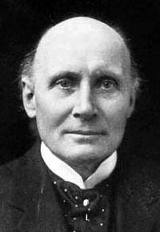 You notice something about life, the art of life, something that you think no-one has ever before identified. But you are usually wrong. It is very, very difficult to discover something new about human existence.
You notice something about life, the art of life, something that you think no-one has ever before identified. But you are usually wrong. It is very, very difficult to discover something new about human existence.
In the «better Self» work that is my current focus, I surprised myself by recognizing three codes that mankind has developed to provide optimum self and social control. It was simple, but new for me at least. One code deals with social existence and controlling our animal instincts, the next deals with living well in accord with what is right for each, and the third is to live according to what goodness demands, whoever you are and wherever you are. (If you are into THEE architecture: these codes correspond to the Root Hierarchy, the Root Typology and the Root Tertiary Hierarchy.)
It was so beautiful and clarifying.
It still is. But I just read in an article by Prof Herstein that Alfred North Whitehead saw the function of our reason as promoting "the art of life". And that involves "(i) to live, (ii) to live well, (iii) to live better." So there you are. Nothing new under the sun.
I remember trying to read the later metaphysical Whitehead (Adventures in Ideas, Science in the Modern World) and finding it hard going. Too many terms. Prof. Herstein confirms my experience. So I am not sure what, if anything, I picked up from those great books. Not enough to write this blog. BTW all quotes in this blog are Whitehead's, courtesy of the Prof.
The article explained that Whitehead wanted education to involve the growth of fully functioning human beings, and he sought to clarify what that involved. This seems close if not identical in spirit to the THEE Online Project. But remember that my thinking emerged from a biological-psychological-social orientation. Whitehead, by contrast, was a mathematician: co-author of Principia Mathematica with Bertrand Russell, his student at Oxford.
He was also a physicist. But there is a deeply human quality to Whitehead's thinking that seems lacking in most modern physicists. He reminded me of Einstein, who disliked and distrusted the impossibility of human understanding brought in by quantum theories. In Einstein's discoveries, it is always possible to imagine something, and then mathematics is supportive. Astonishingly, Whitehead proposed an alternative theory of gravity: seeing a logical discrepancy that Einstein (not being a philosopher) apparently missed. Whitehead's bimetric approach continues to be investigated—although without crediting him.
Whitehead was antagonistic to logical positivism, the fashion of the times. He argued vigorously against a scientific materialism that conceives of objects with properties: but this view endures. He insisted, shades of THEE, that objects are abstractions of experience, and that the fundamental realities are events. Events form relations or patterns, and objects are then abstracted from a continuity-stability in time. Pure THEE again, because all its entities are verbs, not nouns.
The Taxonomy only uses nouns because we habitually nominalize: turn verbs into names of things. If I avoided nouns entirely, website topics would become tortuous reading. But I am unequivocal that we are dealing with process in the human aspects of endeavour. Structures in social life, including organizations, are simply processes that are continually and persistently repeating. Level-1 of Root Level 1 is voluntary motion. So everything psychosocial is traceable back to that experience.
Science itself is psychosocial, which leads me to predict: physics will reduce all phenomena to motion—and, subject to my opening sentiment, you read it here first
Whitehead regarded value as inherent. But inherent in what? In "actuality", that is to say in our "drops of experience" of events. Only experience or feeling is not abstract. This was Schopenhauer's position and it is the position in THEE. To construct a human science, I must avoid abstractions and concepts and focus on what is concrete and observable. This is our experience of things—what we privately feel to be the case and what we share in public. This humanly created reality is the missing universe in current scientific discourse.
What is of widest interest in THEE revolves around the constituents of purpose and value (RL6). Whitehead will be immensely pleased that God is locatable here: and I'm happy for him. This guy got it right.
Alfred: You can rest quietly in your grave—your ideas live on: and be assured, their spirit will eventually win out.
As for me: Fantastic—I am not alone!
WK
About
Warren Kinston